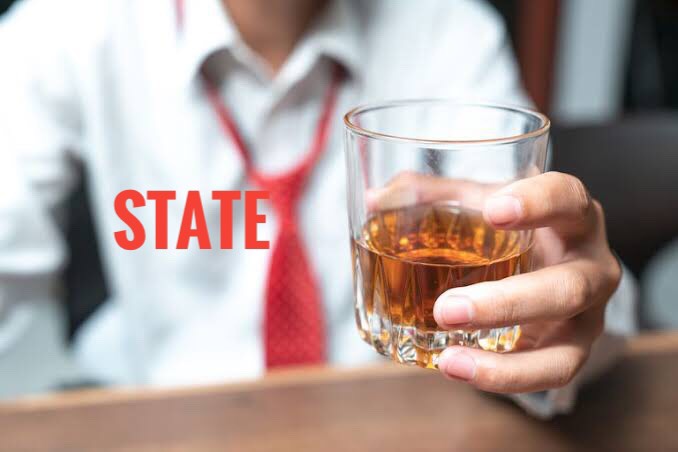- AI
- Air Pollution
- Arbitration
- Asia
- Automobile
- Bangladesh
- Banking
- Biodiversity
- Biological Inventions
- bLAWgathon
- Brand Valuation
- Business
- Celebrity Rights
- Company Act
- Company Law
- Competition Law
- Constitutional Law
- Consumer Law
- Consumer Protection Authority
- Copyright
- Copyright Infringement
- Copyright Litigation
- Corporate Law
- Counterfeiting
- Covid
- Design
- Digital Media
- Digital Right Management
- Dispute
- Educational Conferences/ Seminar
- Environment Law Practice
- ESIC Act
- EX-Parte
- Farmer Right
- Fashion Law
- FDI
- FERs
- Foreign filing license
- Foreign Law
- Gaming Industry
- GDPR
- Geographical Indication (GI)
- GIg Economy
- Hi Tech Patent Commercialisation
- Hi Tech Patent Litigation
- IBC
- India
- Indonesia
- Intellectual Property
- Intellectual Property Protection
- IP Commercialization
- IP Licensing
- IP Litigation
- IP Practice in India
- IPAB
- IPAB Decisions
- IT Act
- IVF technique
- Judiciary
- Khadi Industries
- labour Law
- Legal Case
- Legal Issues
- Lex Causae
- Licensing
- Live-in relationships
- Lok Sabha Bill
- Marriage Act
- Maternity Benefit Act
- Media & Entertainment Law
- Mediation Act
- Member of Parliament
- Mergers & Acquisition
- Myanmar
- NCLT
- NEPAL
- News & Updates
- Non-Disclosure Agreement
- Online Gaming
- Patent Act
- Patent Commercialisation
- Patent Fess
- Patent Filing
- patent infringement
- Patent Licensing
- Patent Litigation
- Patent Marketing
- Patent Opposition
- Patent Rule Amendment
- Patents
- Personality rights
- pharma
- Pharma- biotech- Patent Commercialisation
- Pharma/Biotech Patent Litigations
- Pollution
- Posh Act
- Protection of SMEs
- RERA
- Sarfaesi Act
- Section 3(D)
- Signapore
- Social Media
- Sports Law
- Stamp Duty
- Stock Exchange
- Surrogacy in India
- TAX
- Technology
- Telecom Law
- Telecommunications
- Thailand
- Trademark
- Trademark Infringement
- Trademark Litigation
- Trademark Registration in Foreign
- Traditional Knowledge
- UAE
- Uncategorized
- USPTO
- Vietnam
- WIPO
- Women Empower
The State As An Abettor In Alcohol-Related Crimes
The Hon’ble High Court of Madras is currently dealing with a very interesting issue “Whether the State Government is an abettor in the alcohol-related crimes or not?” Let’s see what the judges had to say about this thought-provoking issue,
Justice N Anand Venkatesh highlighted in an order that, “the State cannot wash its hand from the adverse effects of its policy of selling liquor to its own people” and suggested the government should pay the compensation to victims of offences committed, under the influence of alcohol.
With the same token, the other judges commented that, there should be immediate steps to curb this peril. Likewise, the court wants to make the government also responsible for each and every one of the offence that is committed under the influence of alcohol. Before going into the details, let us first understand some of the terms which are discussed hereinabove:

[Image source]
Who is an Abettor?
According to Section 108 Indian Penal Code, 1860 (herein referred as IPC): An abettor is a person who abets either the commission of an offence or the commission of an act, which would be an offence, if committed by a person capable by law committing that offence with the same intention or knowledge as that of the abettor.
In layman terms, an Abettor can be understood as a person who directly encourages another person to commit a crime and is guilty of provoking the other person.
I would like to cite a judgment to clarify the concept of “Abettor”:
The Hon’ble Madras High Court passed an order in a bail plea arising out of the drunken state of a person, who committed suicide. The Hon’ble Court quoted that “Section 107 IPC which talks about instigating a person to commit an offence, will precisely apply to the Government in this matter.” This verdict was based upon a rationale that, the Government is very well aware of the repercussions of alcohol upon its citizens. Hence, the principle of Res Ipsa Loquitur[1] must be applicable in these kinds of matters.
So, the analogy that is drawn from the above verdict is thatthe State can be an abettor who is instigating or encouraging the citizens in an indirect manner, by selling liquor in an unprecedented way. The government exactly knows the cons of the consumption of alcohol, and still, the State is availing the liquor to the public.
What do you mean by Alcohol -related Crimes?
Alcohol plays a major role in the commission of the offences and violence. The habit of excessive drinking has the ability to lower apprehension, and impairs a person’s judgment which increases the aggressive behavior. This is the main reason for an increase in the rate of alcohol- related crimes.

[Image source]
Alcohol offence is Jaqen, H’gar ( aka the faceless man[2]) and can therefore surface in many faces only common thing “ Valar Morghulis” influence of alcohol .
- Robbery
- Rape
- Assault
- Murder
- Domestic Violence
- Child Abuse
- Kidnapping
Recently in Raipur, Over 1,500 women and men attended the state- convention on the Harmful effects of drinking alcohol. The speakers of the convention recite the data of National Crime Records Bureau (NCRB), and stated: “70-85% women are addressing the alcohol-related crimes, due to the excessive intake of liquor by people.”

[Image source]
A survey conducted by the NCRB shows 2,026 girls and women in 2014 were sexually exploited, 1,423 were kidnapped, 1,286 were raped, 11,206 faced different form of violence and crime.[3]
As you all are now aware of the above two concepts, let us discuss and understand how strong the argument is “State is an abettor in the commission of alcohol- related crimes”:
State Government has the authority to sell liquor under List II, Seventh Schedule of the Indian Constitution. The State Government is very much relying now, on the revenue coming from the sale of liquor. Also, roughly one-fifth of most State government budgets are funded by booze.[4]

[Image source]
The alcohol revenue takes the second, third or fourth position in terms of contribution in Government’s cash box, with the anomaly of Gujarat, Mizoram, Nagaland, and Bihar, where the alcohol is officially banned. Take, Tamil Nadu, for instance; in the last financial year, the Tamil Nadu State Marketing Corporation (Tasmac), the government-owned IMFL monopoly, alone paid a whopping Rs 21,800 crore into the government kitty. In Kerala, where 22 percent of the total government revenue came from the bottle, the total excise and commercial tax revenue from alcohol were close to Rs 8,000 crore.
In States such as Tamil Nadu, Kerala, and Delhi, where the wholesale and retail liquor business is under government control, alcohol revenue is relatively easy to reckon. In Andhra Pradesh, Orissa, Bihar, Chhattisgarh, Rajasthan, Uttarakhand, Uttar Pradesh, Karnataka and Bihar, governments run the wholesale business, leaving retail to private players. Maharashtra’s liquor business is in private hands. Liquor provides 20 percent of the share of the government’s own revenue in most States. In Kerala, it is now 22-23 percent, rising gradually from 15 percent over the past quarter century.[5]
In Karnataka, where the government is in the wholesale business, Excise revenue is currently 20 percent of State revenue. West Bengal’s Excise revenue in the last financial year was Rs 2,600 crore, up from the previous year’s Rs 2,100 crore. Viewed against the State’s total revenue collection of Rs 32,000 crore in 2012-13, the Excise collection was only around 7 percent. However, the Excise figures alone do not show the whole picture as industry estimates that the sales tax on potable alcohol last year was Rs 1,400 crore.
Thus, from my viewpoint, India could be considered as a heavy drinking Country, due to the fact, more than one-fifth of alcohol produced in the world is consumed by Indians. As the sale of liquor is controlled by the State Government, the State could have been more diligent in the distribution of alcohol, rather than increasing the collection of revenue.
Suggestions:
After realizing the amount of Tax that is collected on Alcohol, we clearly understand banning alcohol ( as already done by some states) would never be a economically viable option, then what, we can still stil check and regulate the present heavily unregulated, loosely controlled sale. The State Government should regulate the distribution of liquor in a meticulous manner, by providing Alcohol ID Cards, which could be only availed by the people, who is above the prescribed drinking age. Likewise, the Army canteens provide an Identity card to their officers for the purpose of purchasing goods and even liquor, the Army has put a check in purchasing of alcohol, so that the officers can maintain their capability and fitness. Then, why can’t the Government apply this system in the process of selling liquor to the people?
The State should regulate the timings for the sale of liquor and put the check on availability of liquor, beyond the prescribed timings. Additionally, the State should modulate the shops of liquor on highways, so that they cannot provide the alcohol to people who are travelling. It is also suggested that, there should be a parameter in providing liquor to the people, meaning thereby, whenever a person is approaching the shopkeeper for the purpose of consuming liquor, that person should be tested through some device as to know, how much the person is drunk and accordingly, he/she will be provided with additional liquor.
These are some of various simple implementation methods of controlling Alcohol Related Crimes, We are always open to suggestions, please provide methods which as per you are better ways to achieve the goal.
Author: Mr. Shubham Borkar, Senior Associate – Litigation and Business Development and Vaishvi Khare
– Intern, at Khurana & Khurana, Advocates and IP Attorneys. In case of any queries please contact/write back to us at shubham@khuranaandkhurana. om or at www.linkedin.com/in/shubhamborkar.
References:
[1] Mere occurrence of some types of accident is sufficient to impose negligence.
[2] Game of Thrones
[3] Times of India, 85% crime against women due to alcoholism: NCRB (April 25, 2019), https://www.timesofindia.indiatimes.com
[4] The Hindu, The Alcohol Economy (April 25, 2019), https://www.thehindubusinessline.com
[5] The Hindu, The Alcohol Economy (April 25, 2019), https://www.thehindubusinessline.com



